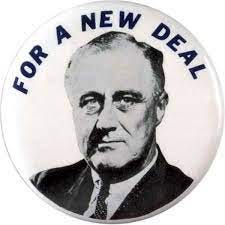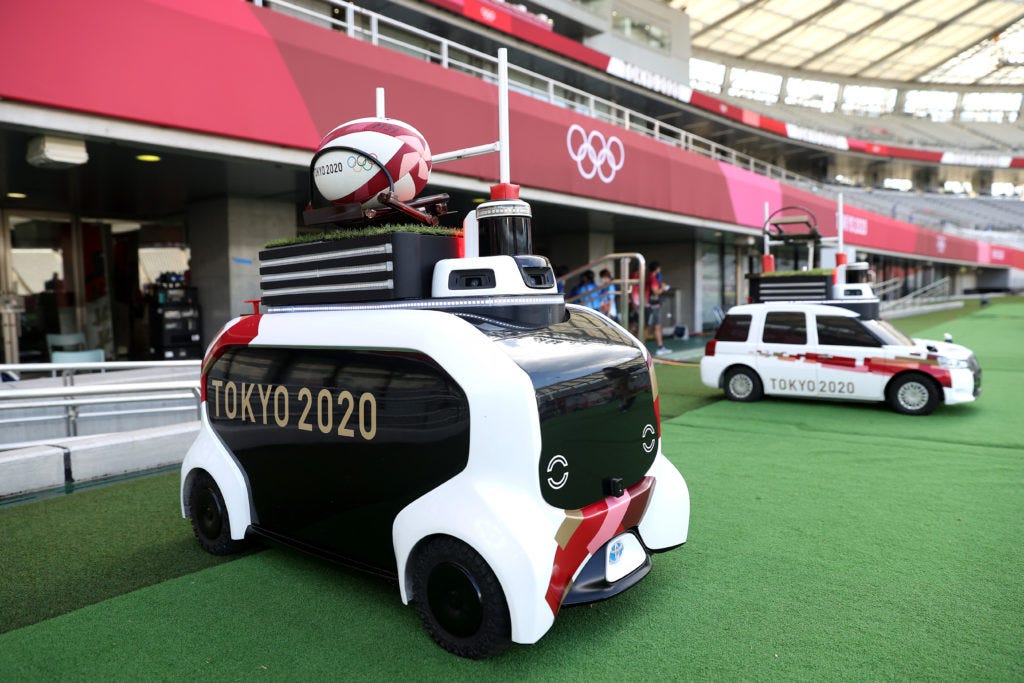Congress passed a historic infrastructure bill for $1.2 Trillion, including $550 Billion in new spending over the next 5 years. The bill funds everything from roads, bridges, rail, electric grid and even rural broadband internet.
Not only is the size and scope of this bill impressive, but it actually passed with bipartisan support, surprising many in the Beltway and beyond. We knew the bill would pass not because we are brilliant, but because everyone loves roads, bridges and ports from kids all the way to your grandparents.
Trump tried to introduce his own infrastructure bill while in office, which makes sense; regardless of party, politicians remain undefeated at spending other people's money. The argument usually comes down to who gets the money, which is how you end up with a 2,700 page bill.
Now before you get too excited, this will not be the Covid Relief Act: you won’t get money sent directly to you or any additional unemployment relief. This bill is an investment in the nation at the literal ground level.
Investing in public goods helps everyone. In some cases, you may benefit from a new highway, or train route. It may indirectly help by spurring economic growth across the country, or it simply might help your Amazon package get there a few seconds quicker which matters to some families.
So, if this is a popular, beneficial, and bi-partisan issue, why are we covering this?
Because it’s unprecedented!1
We are talking about funding levels for public works not seen since the New Deal. Yes, the same New Deal from after the Great Depression in the 1930s. Long enough ago that we still handed out fucking pins with the President’s face on them to garner support.
And while we have thrown around a lot of money since the pandemic started, that spending was meant to help people replace lost income (mostly). This new spending and investment are meant to stimulate growth in our country for decades. Despite how awful the pandemic has been, it's important to note, it was nowhere close to as awful as the Great Depression.
So, we had a weaker economy, (way) more unemployment, and deflation back then. Today, GDP and unemployment have rebounded quicker than most previous recessions and as we have covered, higher inflation.
What does this mean for the economy?
It’s too early to tell, hence the unprecedentedness of the situation. What we do know is launching this much money into an economy that is already roaring back is unheard of. Hopefully, it continues to propel us out of the pandemic and into a new economic boom. Huge numbers of job openings combined with this bill could help raise the standard of living across the lower class.
The counterargument is that this amount of spending is pouring more gasoline on the inflation fire. Infrastructure requires a lot of physical goods which are already scarce and rapidly rising in price. We aren’t engineers, but we’re guessing steel plays a role in building everything we’ve mentioned.
What’s the Upside?
Pick your favorite economist (we don’t count) and they will agree this bill will help drive growth in America. Now, hopefully, you chose wisely, because your favorite economists will fistfight over the risks associated with this bill.
We like infrastructure, jobs, and modernizing America. We will deal with the outcomes because we preach patience and diversification. Continue owning a mix of stocks, bonds, real estate, and enjoy your new transportation network.
For Your Weekend:
This is where we’ll post a round-up of essays, podcasts, and streaming shows to check out over your weekend. We cast a wide net so you don’t have to.
Read:
The Rise of ‘So-So Automation’ by Brent Orell (The Bulwark)
[A]n automation-displaced cashier faces a steep climb to reskill for the new back-office IT jobs that maintain the automated [grocery] checkout (not to mention the fact that one IT specialist can maintain multiple cash registers). Without time and resources to reskill, these workers tend to search for jobs better matched to their existing skill levels. As a result, wages erode over time for jobs made up of routine tasks as growing numbers of displaced low-skill workers compete for low-skill positions. It’s almost as if the virtuous cycle of education-skills-income that marked the American labor market in the twentieth century shifted into reverse: accelerating technological change driving more workers toward lower-skill jobs.
Listen:
Professor Richard Thaler, University of Chicago (The Meb Faber Show)
Richard Thaler is a Professor at the University of Chicago, Nobel-Prize winner, and author of multiple best-selling books, including his release this week, Nudge: The Final Edition. Professor Thaler talks about all the ways choice architecture and nudges affect financial services — including how we save for retirement, pay our taxes, and choose an insurance plan. He covers some fintech companies using his ideas to help consumers have better outcomes, and then covers some companies that he believes are nudging consumers in the wrong direction. Professor Thaler also shares the concept of sludge and how it applies to things like cancelling subscriptions or registering for the new child income credit payments.
Senate Approves Infrastructure Bill (The Dispatch Podcast)
For a sober view on the infrastructure package and the latest climate change report, give the Dispatch a listen. Here’s this episode’s synopsis:
At long last, infrastructure week is here! The gang contemplates what the bipartisan plan and Democratic reconciliation package mean for the country and the economy. Also, how would Sen. Goldberg vote on the bipartisan bill? Then the discussion turns to what should be done about the latest damning climate report. Plus, everyone’s worst fears about Afghanistan from a few weeks ago seem to be coming true. And finally, for dessert, Andrew Cuomo.
Chuckle:
Next person who uses this in an email I will never speak to again













